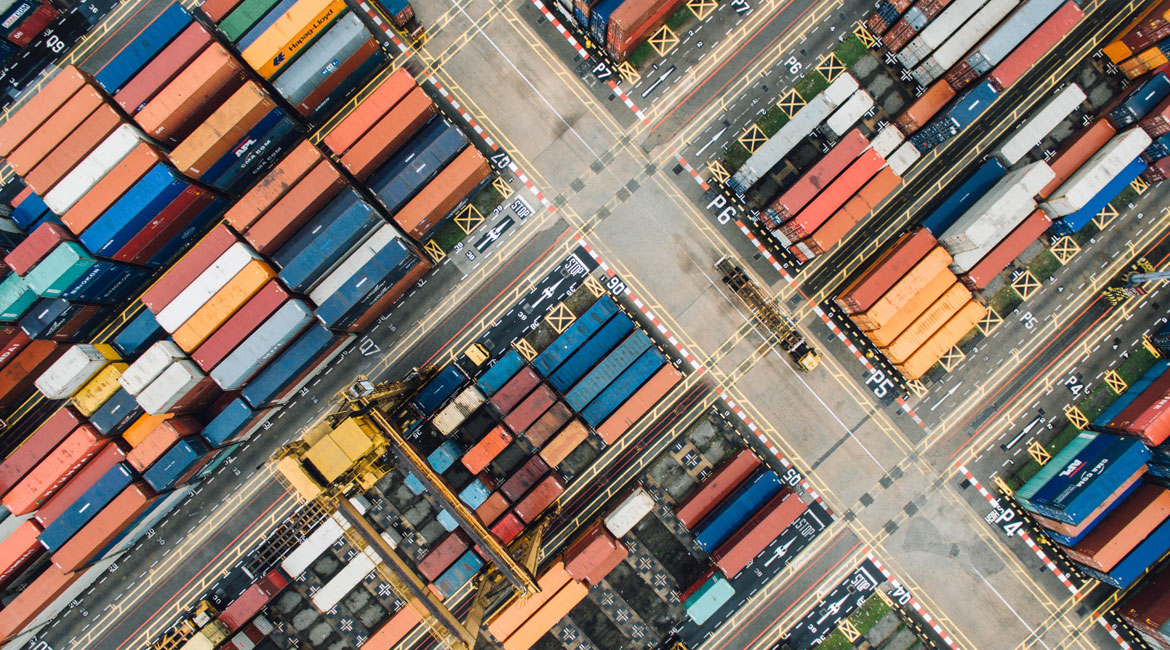The immense amount that the shipping industry has changed over time is something that we take for granted in modern society. In the era of free two day shipping and sometimes even 1-day deliveries, it’s important to examine what is different.
Means of Travel
Ships, railroads, and trucks have changed the fundamentals of how we ship items around the world. In fact, prior to the 1800’s, most items were shipped via merchant ships and horseback.
The change to the shipping industry sped up in the 1900’s. This is due to the development of road systems in many major cities. Cars ultimately became more popular, and trucking followed soon after. Nowadays, our complex shipping system relies on a mix of cargo ships, railroads, and trucks, with each playing an important role in deliveries worldwide.

Tracking Technology and GPS Accuracy
Today we get to enjoy the advanced tracking that shipment companies use. When we order something, we get a pretty accurate estimate on when that delivery will arrive. It’s almost second nature now that we know to use our given tracking number to see any updates about our delivery.
This wasn’t always the case though. While customers had been given a rough estimate on a delivery in the past, the tracking technology wasn’t nearly what it is today. Customers were also left in the dark after an initial estimate.
Additionally, GPS accuracy has also taken a big leap. GPS accuracy has pushed shipping companies to deliver on an increase in productivity and ultimately faster shipments. Gone are the days of needing to write down directions, printing them from your computer, or even asking locals how to get back on the correct route. While advanced GPS technology helps average consumers in our everyday lives, it’s even more important to the shipping industry.
RFID and Smart Devices
While consumer awareness of RFID technology isn’t necessarily as big as tracking or GPS technology, the role that it plays is huge. RFID technology allows for shipping companies to easily keep track of their inventory as it moves from different shipping locations.
RFID uses a chip or a sensor to send out radio waves, essentially transmitting information. Once that information is sent out, it is processed by the company’s computer systems. Shipping companies use RFID technology in a similar manner as barcodes. Although, the superior speed of RFID technology is more beneficial to shipping companies.
Smart devices are changing things for the shipping industry, too. By building sensors into shipping equipment and vehicles, crews can take advantage of real time data and insights related to their shipment. Smart devices connect to the internet, which allows them to transmit data to the crew in charge of the shipment.
Where Things are Going
The future is going to rely heavily on automation. Automation can be a scary subject, because it can replace the need for so many jobs, and we really don’t know how many industries will take advantage of it. One thing that’s for certain though, is that the shipping industry will be fundamentally changed by automation.
Autonomous vehicles are already part of our reality, and autonomous trucks will soon be a part of the shipping industry. While there are still regulatory issues and safety concerns that stand in the way of full implementation, the technology is there. The question now becomes, when will we fully take advantage of it.
Additionally, drones will also become common practice for companies delivering packages. Amazon has led the way in this technological development, announcing Amazon Prime Air. Similar to autonomous vehicles, regulatory hurdles still stand in the way of drone deliveries. There is also still a large associated cost with drone deliveries, making the widespread rollout something that we’ll have to wait a little bit longer for.
|
by Doğan Erbek and STF Team |




